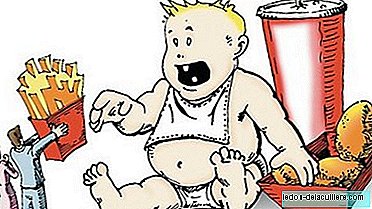
Food is not only basic for a good physical level, intelligence is also linked in some way to what we eat, and how we "feed" the brain. A new study has revealed that Children with a higher degree of consumption of foods high in fat, sugar and processed have lower intellectual quotients.
The study, carried out by scientists from the University of Bristol, in the United Kingdom, also reveals that the cognitive effects derived from the eating habits present in the first three years of the child persist later, although these habits have been modified later.
For the study, data from the Avon Longitudinal Study of Parents and Children (ALSPAC) were used, which recorded information on the health and well-being of 14,000 children born between 1991 and 1992, and also the Wechsler Intelligence Scale for Children, with which the IQ of the children analyzed was measured when they were eight and a half years old.
The results obtained showed that children who, up to three years old, had followed a diet with a predominance of processed foods, presented a reduction of 1.6 points in the IC. On the contrary, a healthy diet at three years meant up to 1.2 points of rise in the intellectual quotient of the children.
The investigation found that good eating habits of young children (rice, pasta, fish, fruit, vegetables ...) were related to a higher IQ.
The explanation is that the brain grows rapidly during the first three years of life, so it is possible that good nutrition during this period is crucial for optimal brain development.
For all this, but above all because we want our children to grow up healthy, we remind you of the decalogue for healthy infant feeding.
So the so-called "junk food" or "junk food", processed foods, high in fat and sugars could influence children's intelligence, preventing a better development, although it is clear that many other aspects influence this area.












